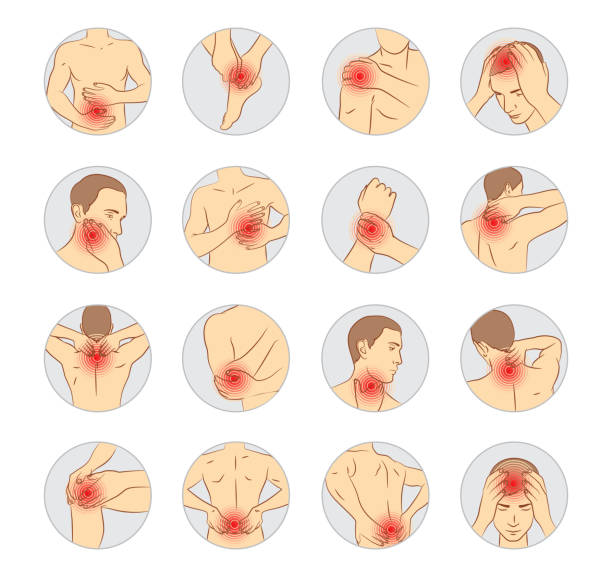How Emergency Dentistry Can Save the Day When Toothaches Strike?

When you have a toothache, it can seem as though everything has flipped upside down. Even the most basic chores may seem unachievable due to the intense, unrelenting pain. Dental crises are never fun, whether you’re experiencing a sharp pain or a sudden surge of suffering. Emergency dentistry can help in this situation! We’ll discuss emergency dentistry in this blog post, along with how it can come to your rescue when those annoying toothaches happen. So fasten your seatbelts and get ready for an insightful voyage through the realm of dental crises!
Emergency Dentistry: What Is It?
Emergency dentistry is a subspecialty of dentistry that deals with treating patients right away when they have dental problems that need to be addressed immediately. In contrast to routine dental appointments, which are typically planned ahead of time, emergency dentistry addresses unanticipated circumstances in which quick action is required to relieve pain, stop additional harm, and maintain oral health.
The provision of emergency dentistry outside of regular business hours is one of its primary features. Dental emergencies can happen at any time—at night, on the weekend, or even on holidays—so knowing that there are committed specialists on hand to help you when you need them most is reassuring.
Severe toothaches, knocked-out teeth from accidents or injuries, broken or fractured teeth from trauma or biting into hard foods, and infections like abscesses that, if left untreated, can cause excruciating pain and swelling are common reasons people seek emergency dental care.
Selecting a trustworthy emergency dentist with experience managing a range of urgent cases is essential to guaranteeing high-quality care during emergencies. Seek out clinics that have received great feedback from clients attesting to their expertise and promptness in handling crises.
Recall: In the event of an unexpected toothache or other urgent dental health concerns during non-business hours, Remain calm! Emergency dentists are available around-the-clock to provide prompt relief so you can resume chewing, smiling, and living a pain-free life.
Typical Reasons for Toothaches
Toothaches can cause us great discomfort and interfere with our everyday activities. It may be challenging to talk, eat, or simply focus on anything else while they are around. It’s critical to recognize the typical causes of toothaches in order to get the right care and avoid developing more issues.
Dental cavities or decay is a common cause of toothaches. Cavities can be excruciating when germs accumulate on teeth and release acids that destroy the enamel. These cavities are uncomfortable because they reveal the tooth’s delicate inner layers.
Gum disease is another cause of toothaches. When plaque and tartar build up along the gum line, it can cause infection and inflammation, which is known as gum disease. This may cause the gums to swell, become sensitive to the touch, and produce a throbbing ache in the affected areas.
Sometimes the source of a toothache is a cracked or shattered tooth. Teeth cracks or fractures can result from trauma caused by biting down on something hard or from injuries sustained during athletic activities. When pressure is applied, these breaks may reveal the nerves inside the teeth, causing excruciating agony.
In addition, toothaches may also be caused by sinus infections. Since the sinuses and the roots of the upper back teeth are near to each other, an infection or allergy can cause the sinuses to become inflamed, which can result in referred pain that feels like a toothache.
A temporomandibular joint (TMJ) dysfunction may cause a persistent jaw soreness that radiates to neighbouring teeth.
Symptoms & Indications of a Dental Emergency
It’s critical to recognize the warning signs and symptoms of dental emergency. Later on, more significant problems with oral health may arise if these signs are disregarded or underestimated. So how can you determine whether you need emergency dental care for your toothache?
An obvious indicator of a dental emergency is excruciating pain that is unabated by over-the-counter analgesics. This can be a sign of a tooth or gum abscess that needs to be treated right away.
Persistent bleeding from the mouth is another sign to be aware of. Seeking quick medical attention is crucial if you’re bleeding uncontrollably following a dental operation or injury, as this could signal blood vessel damage or other underlying problems.
A dental emergency may also be indicated by facial and jawline swelling. This swelling could indicate that an infection has progressed to other teeth and possibly to the surrounding tissues.
A dental emergency should also be regarded as any trauma or accident that causes a chipped or knocked-out tooth. Your chances of salvaging the damaged tooth can be increased by taking immediate action and making contact with an emergency dentist.
Recall that the best course of action for possible dental crises is immediate intervention. Knowing these symptoms and indicators and acting quickly when needed can assist to guarantee appropriate care and stop more issues.
What to Do in the Event of a Dental Emergency or Toothache
A dental emergency or toothache can be a very unpleasant and terrifying experience. Being aware of what to do in these circumstances can assist reduce suffering and stop additional harm. When you have a dental emergency or toothache, remember these crucial actions.
1. Evaluate the circumstance:
Assess the intensity of your symptoms first. Is it something more serious, or just a small toothache? Keep an eye out for symptoms such as bleeding, swelling, or trouble breathing.
2. Rinse your mouth:
To remove any debris and relieve any discomfort, gently rinse your mouth with warm saltwater. Steer clear of hot water as this could exacerbate the pain.
3. Use cold compresses: Placing a cold compress against the outside of your cheek in the vicinity of the injured area will assist minimize swelling and momentarily dull the pain.
4. Take over-the-counter pain relief:
If you’re in excruciating pain, think about taking an ibuprofen or other over-the-counter pain killer as recommended on the label.
5 visit an emergency dentist:
If you experience injuries, ongoing pain, or other worrisome symptoms relating to your teeth or gums, you should visit a dentist right away. Emergency dentists are qualified to treat urgent dental problems in a timely and efficient manner.
Keep in mind that every scenario is different and that these steps are only broad recommendations! Always seek the advice of a qualified dentist for an accurate diagnosis and care designed just for you.
The Advantages of Using Emergency Dental Services
It can be quite painful and distressing when a toothache strikes. More than simply pain relief can be obtained by obtaining emergency dentistry treatments, regardless of whether the condition is the result of a chronic tooth problem or just the abrupt onset.
The quick access to expert care that emergency dentistry offers is one of its main benefits. Emergency dentistry clinics are specifically built to handle urgent emergencies, in contrast to routine dental visits, which may involve booking weeks in advance. This implies that you won’t have to endure agonizing pain for days or even weeks in order to receive therapy.
The knowledge and specific training that emergency dentists possess is an additional advantage. These experts have the training and experience needed to manage a variety of dental emergencies, from excruciating toothaches to knocked-out teeth. They are skilled in managing delicate procedures in a swift and effective manner, guaranteeing the best possible results for patients.
Finally (do not use this expression), there are a lot of advantages to using emergency dentistry services if you have a toothache or other dental emergency. From averting further difficulties to providing quick access to specialist knowledge and skilled treatment.
Pills4cure online pharmacies offer remote consultation services with licensed healthcare professionals to evaluate the customer’s health condition and determine the most appropriate treatment.
Keeping Dental Emergencies at Bay
Maintaining your oral health in a proactive manner is essential to avoiding dental emergencies. Here are a few easy-to-follow yet powerful toothache prevention strategies.
1. Keep up a regular oral hygiene schedule.
By brushing and flossing twice a day, you can reduce the risk of cavities and gum disease by removing plaque from your teeth.
2. Make time for routine dental examinations:
Frequent trips to the dentist enable early identification of any possible problems before they develop into crises.
3. Wear safety gear when exercising:
Mouth guards can prevent teeth fractures and dislodgement if you play contact sports or engage in other leisure activities where there is a chance of facial impact.
4. Refrain from biting on hard objects:
Biting into ice cubes, pencils, or popcorn kernels can crack teeth or harm dental treatment already done.
5. Maintain a healthy diet:
Eating a diet high in calcium and other vital nutrients helps to build teeth and bones, which lowers the risk of dental issues.
6. Break poor habits:
Give up alcohol and tobacco use, as these behaviours raise the risk of oral health problems like gum disease and oral cancer.
7. Take quick action to treat underlying dental conditions:
Kill Tooth Pain Nerve in 3 Seconds permanently, dental decay, and malocclusion stops these conditions from getting worse and necessitating emergency care.
You can lessen your chances of suffering from an uncomfortable dental emergency by carefully adhering to these preventive procedures! Thus, for a worry-free smile, make sure to give your dental health first priority!
In summary
It’s critical to understand that emergency dentistry can come to the rescue when a toothache strikes. Whether it’s a tooth injury or a sudden onset of pain, getting emergency care from a qualified emergency dentist can help you maintain your oral health.
You can respond quickly when necessary if you know the typical causes of toothaches and how to spot the warning signs and symptoms of dental crises. Never forget to get in touch with your dentist right away if you encounter any strange symptoms, like severe pain, swelling, or bleeding.
There are many advantages to obtaining emergency dental care. You’ll not only get quick and efficient treatment for your dental problem, but you’ll also feel better knowing that expert assistance is only a phone call away. Emergency dentists are equipped with particular training and tools to manage critical cases effectively.
But our first concern should always be prevention. We may greatly lower our chance of encountering dental crises by adopting appropriate oral hygiene practices, such as consistent brushing and flossing, scheduling frequent dental check-ups, and using protective gear during physical activities or sporting events that could result in dental injuries.
Remember that time is often of the essence when it comes to your oral health. If you find yourself in need of emergency dental treatments, don’t be afraid to contact us. You should pay instant attention to your grin!
Thus, maintain your composure and put your trust in the capable hands of a qualified emergency dentist who will treat your pain and guarantee your oral health in every circumstance!




